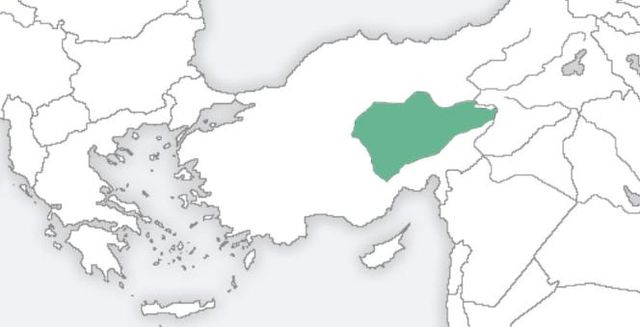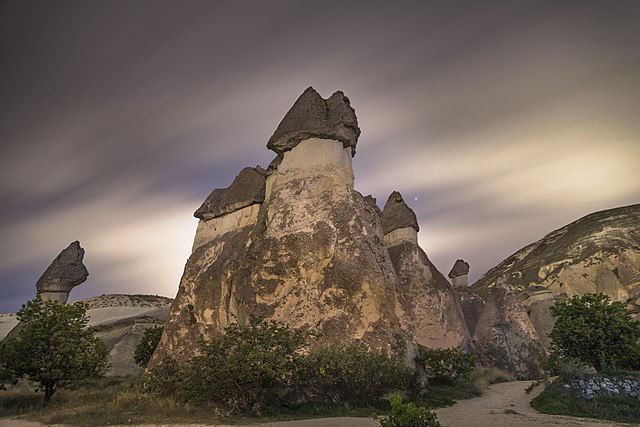Cappadocian Greek, also known as Cappadocian is a dialect of modern Greek, originally spoken in Cappadocia by the descendants of the Byzantine Greeks of Anatolia. The language originally diverged from Medieval Greek after the late medieval migrations of the Turks from Central Asia into what is now Turkey began cutting the Cappadocians off from the rest of the Greek-speaking Byzantine Empire. As a result of the population exchange between Greece and Turkey in 1923, all remaining speakers were forced to emigrate to Greece where they were resettled in various locations, primarily in Central and Northern Greece. The Cappadocians were encouraged to shift to Standard Modern Greek as part of their integration into Greece, and their language was thought to be extinct since the 1960s. In June 2005, Mark Janse and Dimitris Papazachariou discovered Cappadocians in Central and Northern Greece who could still speak their ancestral language fluently. Many are middle-aged, third-generation speakers who take a very positive attitude towards the language, as opposed to their parents and grandparents. The latter are much less inclined to speak Cappadocian and more often than not switch to Standard Modern Greek.

Original Cappadocian homeland
Cappadocia is a historical region in Central Anatolia, Turkey. It is largely in the provinces of Nevşehir, Kayseri, Aksaray, Kırşehir, Sivas and Niğde.
Cappadocia
Image: Cappadocia balloon trip, Ortahisar Castle (11893715185)
Image: Cappadocia Aerial View (6998755984)
Image: Uçhisar, Cappadocia 01





